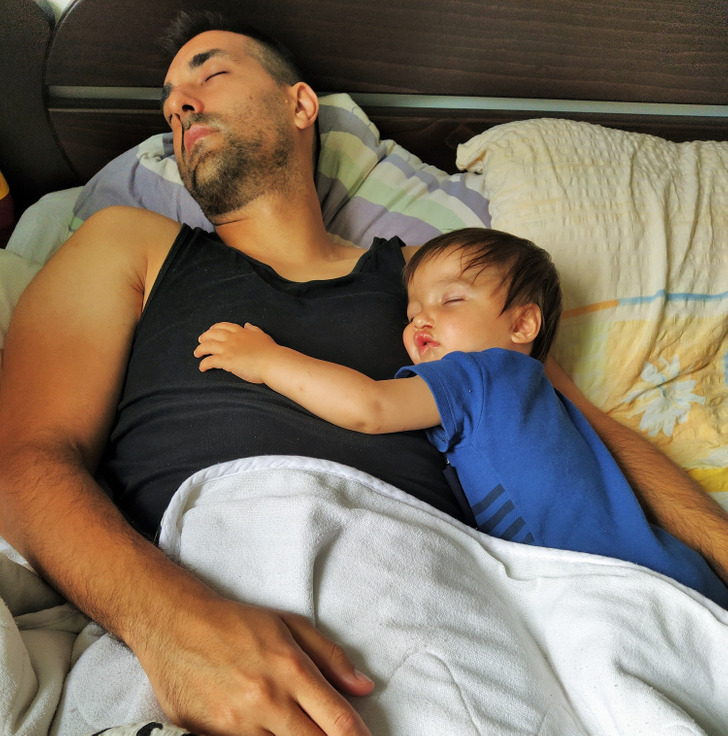13 Important Things to Discuss With Your Partner Before Having a Baby
The decision to give life to a new person is a very responsible step. For this reason, many couples try to ask each other questions beforehand, which can be a hurdle during the baby’s first months of life, and while they’re growing up. For example, it can easily turn out that one of the parents wants their child to study music, while the other thinks that nothing is better for children’s development than sports.
1. Does your partner’s health allow her to give birth right now?

It can happen that a gynaecologist will tell their patient that their body can safely withstand childbirth even at the age of 40. It all depends on the woman’s fitness. If she leads a healthy lifestyle, it is likely that she will have no problems carrying a baby.
2. Who will be working more now?

After the birth of a child, the family budget may start to falter as one partner becomes temporarily unable to work. In addition, the couple will now have to spend additional money buying things for the new baby. That’s why it’s easier to avoid arguments over a lack of money and plan ahead for upcoming expenses.
3. How do you feel about the fact that your partner’s body may not return to its previous form?

Probably only the stars of fashion blogs manage to post photos with a flat tummy 2-3 months after childbirth. In reality, it’s not uncommon for a woman’s skin to acquire “embellishments” in the form of stretch marks, she may have a painful scar after a C-section, and breastfeeding can be very painful at first, for many women.
4. Are you ready to give up your fun?
With the arrival of a baby, parents will have to give up their usual pastimes. For example, parties at clubs or noisy get-togethers with friends. Some moms and dads find that you have to be prepared for the fact that 95% of the time you used to spend on trips and restaurants will now have to be devoted to your children’s needs. And it won’t be for a year but at least a decade until they are more or less able to be on their own.
5. Do you realize that your social circle may change?
Those, who are already parents, know that not every colleague or childless friend can handle endless baby talk or the regular display of pictures like “here the baby is smiling, and here he’s taking his first steps.” Therefore, the new parents would do well to, in advance, get used to the idea of the appearance of new acquaintances with common interests. For example, it could be other parents who you happen to meet at the playground.
6. How you will celebrate the holidays and how much you will spend on gifts for the children.

It may well be that in one partner’s family, it was a custom to throw lavish celebrations or to give children large sums of money. Others, meanwhile, were happy with even a small gift. So now the young parents will have to come to an agreement: will it be enough for the child’s birthday party to go to the children’s playroom, or will they have to throw a large-scale party with entertainers?
7. Do you realize that marital romance can come to naught in the first few months?

Babysitting takes so much energy that often, by the end of the day, parents can hardly stand on their feet. The only thing they want to do is go to bed and sleep soundly. And young mothers can also be hit by postpartum depression, which does not add to the desire for candlelight evenings and intimate conversations with a partner.
8. Will you periodically replace home-cooked food with fast food?

It’s easy to make a promise to feed your children only healthy foods. But parents often find that their son or daughter is exceptionally stubborn and refuses to eat what they should. In fact, it turns out that there’s nothing wrong with occasionally letting your child nibble on crackers or refuse to eat vegetables at family dinners.
9. Who will look after the children?

Experienced parents know that it’s important to consider in advance which of them will devote more time to the child. Perhaps both partners will be working, in which case one, or some of the grandparents, will take over the care of the child. It may also be that the child will go to a nursery at the age of 2 and be looked after by the childminders during the working day.
10. How would you react if it appeared that you had fallen out of love with your partner?

Sometimes it happens that a young mother doesn’t get the support she needs and wonders whether she should continue her relationship with her husband. She feels that her partner has decided to hand over all the responsibility of childcare to her. It’s therefore better to share parenting responsibilities right away and also to agree that if your relationship falters, you will try to figure out at what point something went wrong.
11. Should you raise your child to be an athlete or is a morning exercise routine enough?

Some parents think that their child must go to football or swimming practice, while others think that their son or daughter will get enough exercise from playing with their friends. The main thing is to come to a compromise on this issue in time and decide which parent will take the child to clubs and will be more often their number one fan at competitions.
12. Should you post photos of your kids on social media?

No one disputes that photos of babies covered in mashed potatoes, or wrapped in a fluffy towel are adorable and get lots of likes. But many parents decide together that they will only share such pictures with people close to them. In addition, older children may not be thrilled to see pictures of them in diapers popping up online from time to time.
13. What will you do if things don’t go as planned?

Experienced parents advise to discuss parenting difficulties beforehand. For example, it’s best to agree from the start what you will do if your child starts getting poor grades at school, being rude to elders or having conflicts with peers.
Do you think these questions would be enough? Or would you like to ask your partner something else?

